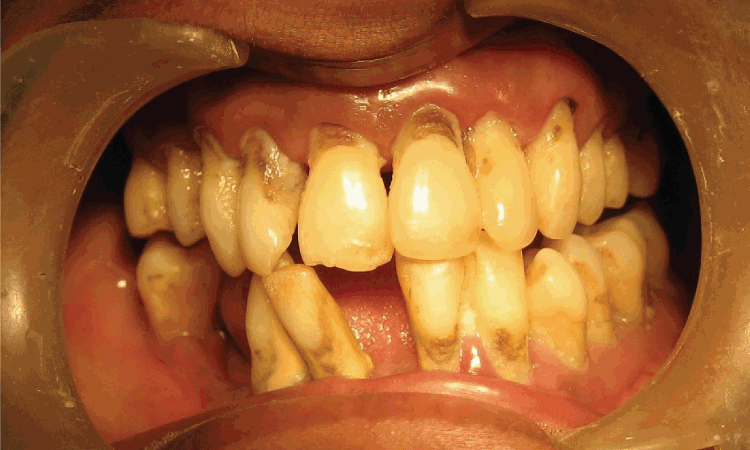- Home
- Medical news & Guidelines
- Anesthesiology
- Cardiology and CTVS
- Critical Care
- Dentistry
- Dermatology
- Diabetes and Endocrinology
- ENT
- Gastroenterology
- Medicine
- Nephrology
- Neurology
- Obstretics-Gynaecology
- Oncology
- Ophthalmology
- Orthopaedics
- Pediatrics-Neonatology
- Psychiatry
- Pulmonology
- Radiology
- Surgery
- Urology
- Laboratory Medicine
- Diet
- Nursing
- Paramedical
- Physiotherapy
- Health news
- Fact Check
- Bone Health Fact Check
- Brain Health Fact Check
- Cancer Related Fact Check
- Child Care Fact Check
- Dental and oral health fact check
- Diabetes and metabolic health fact check
- Diet and Nutrition Fact Check
- Eye and ENT Care Fact Check
- Fitness fact check
- Gut health fact check
- Heart health fact check
- Kidney health fact check
- Medical education fact check
- Men's health fact check
- Respiratory fact check
- Skin and hair care fact check
- Vaccine and Immunization fact check
- Women's health fact check
- AYUSH
- State News
- Andaman and Nicobar Islands
- Andhra Pradesh
- Arunachal Pradesh
- Assam
- Bihar
- Chandigarh
- Chattisgarh
- Dadra and Nagar Haveli
- Daman and Diu
- Delhi
- Goa
- Gujarat
- Haryana
- Himachal Pradesh
- Jammu & Kashmir
- Jharkhand
- Karnataka
- Kerala
- Ladakh
- Lakshadweep
- Madhya Pradesh
- Maharashtra
- Manipur
- Meghalaya
- Mizoram
- Nagaland
- Odisha
- Puducherry
- Punjab
- Rajasthan
- Sikkim
- Tamil Nadu
- Telangana
- Tripura
- Uttar Pradesh
- Uttrakhand
- West Bengal
- Medical Education
- Industry
Psoriasis Severity Linked to Apical Periodontitis but Not to Dental Caries: Study

Researchers have found in a new study that a significant association between psoriasis severity and apical periodontitis (AP), suggesting a possible role of psoriasis in AP pathogenesis. However, no significant correlation was observed between psoriasis and dental caries. Additionally, immune-modulating drugs from psoriasis patients did not appear to affect apical periodontitis prevalence.
A study evaluated the prevalence of apical periodontitis (AP) and caries in subjects with psoriasis vulgaris. In total, 152 patients with psoriasis vulgaris were included in the study. The severity and extent of psoriasis were assessed according to the Psoriasis Area Severity Index (PASI), the Body Surface Area (BSA) and the Physician's Global Assessment Scale (PGA). Periapical status was assessed through dental examination and periapical radiographs.
Data regarding the Periapical Index (PAI), caries experience expressed as the Decayed, Missing, Filled Teeth Index (DMFT) and psoriasis medications were recorded. A predictive logistic regression model for the presence of apical periodontitis and a linear regression model were then built to relate the severity and extent of apical periodontitis to the type of drug therapy taken for psoriasis and to the severity and extent of the skin disease. Results: Subjects with severe/moderate psoriasis showed a significantly higher prevalence of AP (p = .002) and a higher PAI score (p = .0035) than subjects with mild psoriasis. No significant correlation was found between apical periodontitis and caries experience (p = .76). The logistic regression model showed that moderate/severe psoriasis increased the odds of having apical periodontitis [odds ratio (OR) = 1.30 ± 1.088, 1.55]. A negative linear relationship between biological drug intake and PAI score value was observed (coefficient = −.54; p = .04).
The degree of severity of psoriasis is significantly associated with apical periodontitis, suggesting that psoriasis may play a role in the pathogenesis of apical periodontitis. However, no significant correlation was observed for caries experience. Furthermore, the immune-modulating drugs taken by these patients did not seem to have different effects on the prevalence of apical periodontitis.
Reference:
Marruganti, C., Malvicini, G., Cinotti, E., Fuso, A., Trovato, E., Rubegni, P. et al. (2025) Association between apical periodontitis and psoriasis vulgaris: A cross-sectional study. International Endodontic Journal, 00, 1–14. Available from:https://doi.org/10.1111/iej.14222
Dr. Shravani Dali has completed her BDS from Pravara institute of medical sciences, loni. Following which she extensively worked in the healthcare sector for 2+ years. She has been actively involved in writing blogs in field of health and wellness. Currently she is pursuing her Masters of public health-health administration from Tata institute of social sciences. She can be contacted at editorial@medicaldialogues.in.
Dr Kamal Kant Kohli-MBBS, DTCD- a chest specialist with more than 30 years of practice and a flair for writing clinical articles, Dr Kamal Kant Kohli joined Medical Dialogues as a Chief Editor of Medical News. Besides writing articles, as an editor, he proofreads and verifies all the medical content published on Medical Dialogues including those coming from journals, studies,medical conferences,guidelines etc. Email: drkohli@medicaldialogues.in. Contact no. 011-43720751


